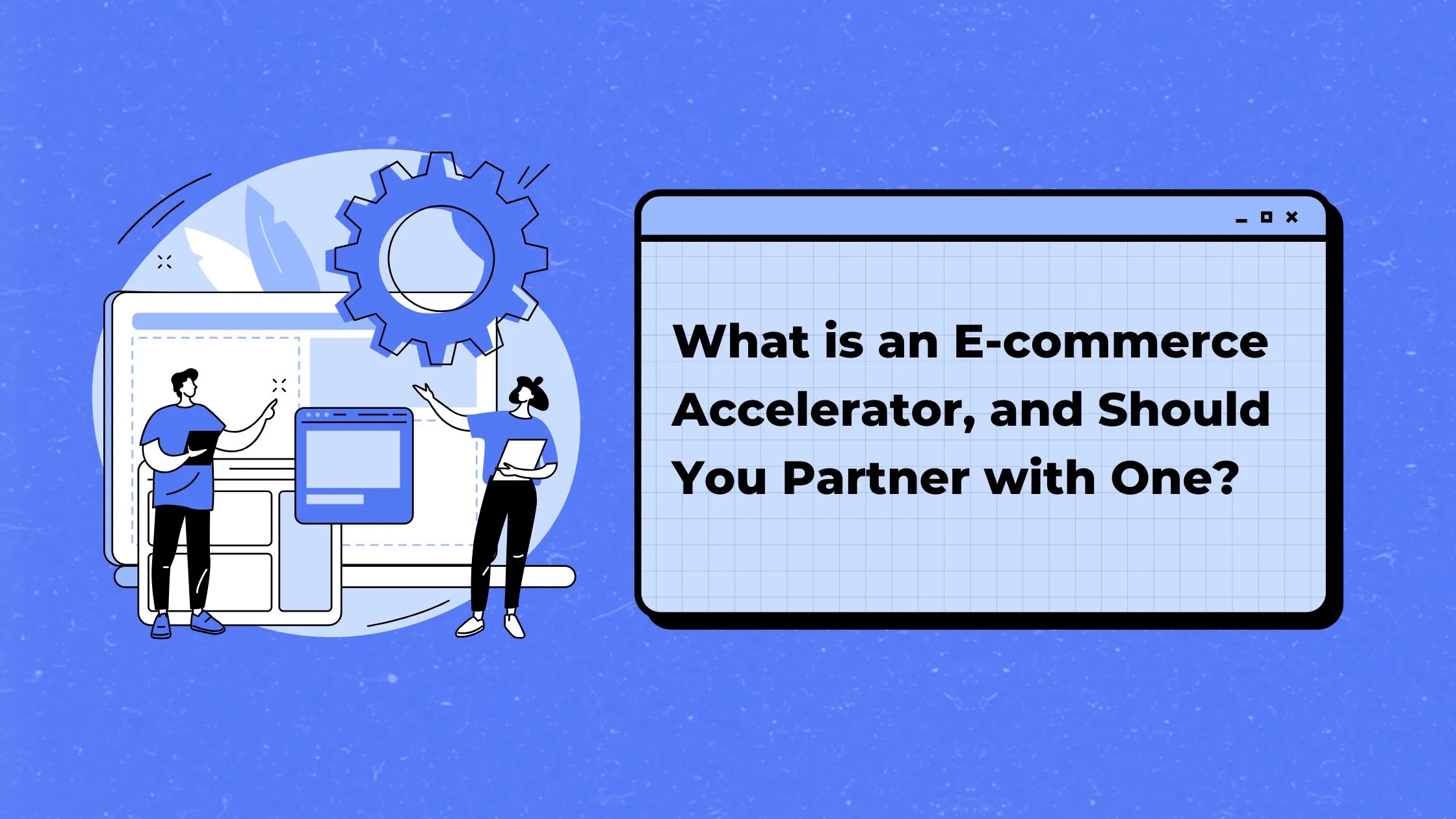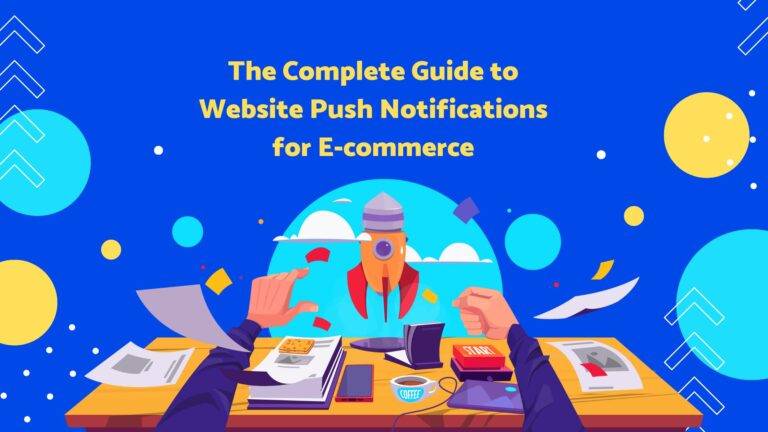The e-commerce industry has grown into a massive $6 trillion market, and with online shopping continually expanding, competition has never been tougher. To stay competitive, brands must consistently refine and strengthen their e-commerce strategies. One effective approach is collaborating with an e-commerce accelerator. In this article, we’ll break down what e-commerce accelerators are and how they can support your brand’s growth.
Understanding E-commerce Accelerators
An e-commerce accelerator works alongside brands by offering expertise, advanced technology, and resources to scale online sales. They invest by purchasing inventory and leveraging their omnichannel knowledge, tools, and infrastructure to help brands unlock opportunities and boost revenue across major marketplaces such as:
- Amazon
- Walmart
- Target
- Tmall
- Mercado Libre
How E-commerce Accelerators Drive Growth
A distinguishing factor of e-commerce accelerators is their business model. Instead of charging service fees or taking a share of ad spend, they earn only by reselling your products. Since they buy your inventory, their own capital is at stake, which motivates them to focus on profitable growth. This structure ensures they enhance your brand’s online visibility, lower operational costs, and allocate ad budgets only toward strategies that directly increase sales.
Key Features of an E-commerce Accelerator
Bridging resource gaps:
E-commerce accelerators step in to close resource gaps, analyze data patterns, and unlock profitable growth. With their combination of proprietary data tools, market expertise, and global reach, they act as an extension of your team—managing everything from product listings and e-commerce marketing to logistics and fulfillment.
Financial commitment to your brand:
Unlike traditional service providers, accelerators invest directly by purchasing your inventory. This creates a full financial stake in your brand’s success. They often serve as your exclusive distributor on select marketplaces, covering their costs through product resale.
Maintaining brand control:
Accelerators help safeguard brand consistency and pricing across online marketplaces. Acting as your authorized distributor, they ensure a uniform brand presence and pricing structure. Some even handle the costs of enforcing distribution policies to protect your brand’s reputation and customer experience.
Beyond SEO and advertising:
Accelerators don’t just drive sales through ads, SEO, content, and creative design. They also manage supply chain logistics, provide access to proprietary data, and support brand control—all aimed at maximizing marketplace success.
Collaborative growth model:
With accelerators, your growth is their growth. Unlike aggregators who buy your business or agencies that charge service fees, accelerators profit only when your products sell, aligning their incentives directly with yours.
Identifying and Capitalizing on New Opportunities
Thanks to their scale, e-commerce accelerators can uncover and act on growth opportunities for your brand, both in local and global markets. This may include identifying new product innovations, creating marketplace-optimized bundles, expanding into international markets, or improving shipping efficiencies.
How E-commerce Accelerators Differ from Traditional Development Agencies
Traditional development agencies usually focus on building and maintaining websites. Their services often include design, development, SEO, and digital advertising, covering both brand websites and marketplaces. E-commerce accelerators, however, specialize in marketplace selling. Instead of providing one-time services, they take responsibility for managing and scaling a brand’s marketplace presence.
A key difference is that accelerators typically purchase inventory and act as an exclusive distributor on specific platforms. This financial investment in your success is what sets them apart from agencies that simply charge fees for services. Additionally, accelerators bring insider knowledge of marketplace algorithms, global commerce, and consumer behavior, using this expertise to strengthen your brand’s performance.
Benefits of Partnering with an E-commerce Accelerator
- Expertise without losing control: Accelerators collaborate with you to design and implement strategies that fuel growth, while keeping your brand in charge. Their success is directly linked to yours.
- Expand your reach: With their marketplace expertise, accelerators can help you scale into new regions and audiences—both at home and abroad—that may have been difficult to access independently.
- Efficiency and cost savings: From logistics and fulfillment to advertising and SEO, accelerators streamline operations and cut overhead, freeing you to focus on your core business and product development.
E-commerce Accelerators: Driving Growth While Keeping You in Control
E-commerce accelerators provide brands with access to powerful expertise and resources while allowing them to retain full control of their strategies and decisions. With their focus on profitable growth and operational efficiency, accelerators are an attractive option for brands seeking to succeed in today’s competitive online marketplace.
Partnering with Pattern — The World’s Leading E-commerce Accelerator
Pattern stands as the global leader in e-commerce acceleration. With a team of more than 1,400 employees across 22 countries, they help brands sell on over 60 international marketplaces. Acting as an extension of your e-commerce team, Pattern supports every aspect of marketplace growth—from advertising, SEO, and content to design, logistics, and supply chain management.
Focused on sustainable, long-term success, Pattern helps brands maintain price control, expand to new marketplaces, and maximize omnichannel sales and revenue. When a partnership begins, Pattern places an initial inventory order for anticipated sales in the first few weeks. As products sell, they continue purchasing additional stock, accelerating growth as quickly as possible.
Conclusion
E-commerce accelerators are valuable partners for brands seeking rapid, sustainable growth. They allow you to maintain full ownership while benefiting from global expertise, advanced technology, and financial investment in your success.
By working with an accelerator like Pattern, brands gain access to proprietary data, marketplace expertise, and a partnership model built on shared growth. If scaling your e-commerce presence is your next step, partnering with an accelerator may be the smartest move for your business.
FAQs
Q1. How do I know if my brand is ready for an e-commerce accelerator?
If your brand is generating consistent online sales but struggling to scale due to resource gaps, operational challenges, or limited expertise, you may be ready to work with an accelerator.
Q2. Do e-commerce accelerators take equity in my business?
Most accelerators do not take equity. Instead, they purchase your inventory and act as your exclusive distributor on marketplaces, aligning their success with yours.
Q3. How is an accelerator different from an agency?
Agencies typically charge fees or retainers for specific services like SEO or ads. Accelerators, on the other hand, invest directly by purchasing your products, and they only profit when your products sell.
Q4. Can e-commerce accelerators help with international expansion?
Yes. With their scale and global infrastructure, accelerators can help brands enter new international marketplaces and optimize logistics for cross-border selling.
Q5. What kind of services do accelerators provide beyond marketing?
In addition to advertising and SEO, accelerators often handle logistics, supply chain management, pricing control, compliance, and marketplace policy enforcement.
Q6. How do accelerators ensure brand consistency across marketplaces?
By acting as your authorized distributor, accelerators enforce consistent pricing, brand messaging, and customer experience across all platforms.
Q7. Are accelerators suitable for small businesses?
While larger brands benefit most from a full buy/sell model, some accelerators also work with smaller businesses, though they may charge fees or retainers until sales volume reaches scale.
Q8. How long does it take to see results with an accelerator?
Timelines vary by brand and marketplace, but many brands start to see measurable growth within the first few months as inventory moves and campaigns are optimized.
Q9. Do accelerators replace my internal team?
No. They act as an extension of your team, providing expertise, tools, and resources while keeping you in control of strategy and decision-making.
Q10. What industries or product categories benefit most from accelerators?
Consumer goods, beauty, fashion, electronics, home products, and other categories with high marketplace demand often see the greatest impact.
Q11: What types of brands can benefit from an e-commerce accelerator?
A: Any brand aiming to expand its online presence can benefit. Larger brands generating $5M+ in marketplace sales often work under a buy/sell model, while smaller brands may require a retainer or fee to make the partnership financially viable.
Q12: How does an e-commerce accelerator earn revenue?
A: Accelerators make money by reselling inventory. They purchase products at a wholesale price that covers their costs and marketplace fees, becoming the brand’s exclusive distributor on selected platforms.
Q13: Do I keep control over my brand’s strategy?
A: Yes. Accelerators like Pattern provide resources, technology, and expertise, but all final strategic decisions remain with you.
Q14: How does an accelerator differ from an aggregator?
A: Accelerators partner with brands by purchasing inventory and managing end-to-end marketplace growth, without taking equity. Aggregators, however, acquire majority stakes or buy out brands entirely, consolidating products under their portfolio to sell at scale.



